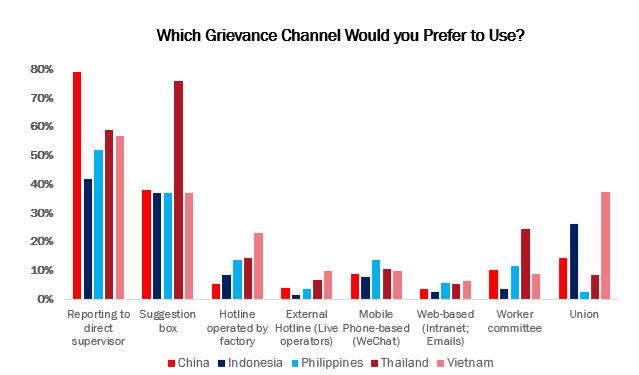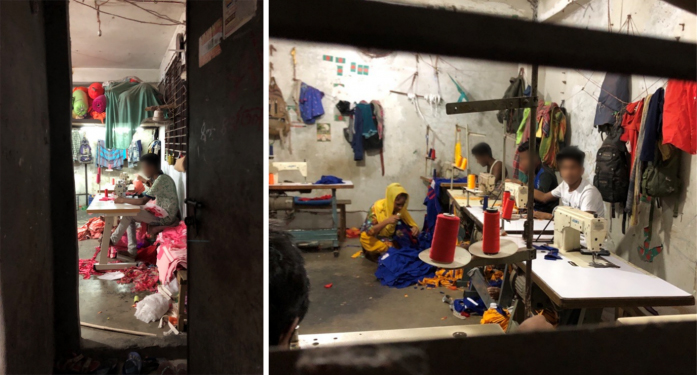Digital tools to support vulnerable worker populations
Companies are struggling to keep supply chains moving while also keeping workers safe. This challenge is not new to responsible sourcing, but the pandemic has added new challenges including knowing where to look for workforce risks, which tools are effective to mitigate risk to people and to provide effective communication channels. As ELEVATE and many others have noted (see June 5th blog), the pandemic has highlighted the unequal impact on different types of workers. Migrant workers are disproportionately suffering the health and economic impacts caused by COVID-19. The largely ‘invisible’ nature of migrant populations adds to the complexity of detecting their vulnerability. Two of the more complex risks to monitor are forced labor conditions in supply chains and labor recruitment practices.
Factories are feeling even more pressure from buyers on price and lead time which is causing local factories to compete for business at the lowest price. To meet these demands, Tier 1 suppliers’ sub-contract through layers of ‘sub-tier’ factories – many of them informal and unregistered. Under these conditions, forced and bonded labor and the prevalence of modern slavery thrives as these factories are subject to almost no regulation. Brands and retailers therefore have an additional risk of not knowing where goods are produced.
As a potential solution to manage these risks there has been a rapid transition to connect remotely with workers. However, a transition to remote interviews could potentially expose workers to higher risks if the right infrastructure is not in place to support the shift. The new risks brought by the rush to launch any technological technique during COVID-19 to remote worker engagement should consider the slippery slope and impact this could have over the integrity and trust of the process. Through ELEVATE’s commitment to uphold the WEST Principles, we use technological advances to learn directly from workers of their concerns and therefore make it possible to mitigate these hidden business risks. For the past ten years ELEVATE has been surfacing insights from workers through the social audit process as well as anonymous channels using technology. This week our Worker Engagement team provided insights to the projects ELEVATE is offering to our partners to identity and address the urgent needs of vulnerable populations in supply chains.

Detecting unauthorized subcontracting in Bangladesh
Several of the last factory disasters, including the Tazreen factory fire and Rana Plaza factory collapse were at sites unknown and unauthorized by brands and retailers (source). To support a company’s responsibility to protect workers in factories beyond their first-tier suppliers, ELEVATE’s Analytics team is partnering with ELEVATE customers to detect the risk of unauthorized subcontracting by using predictive modelling. Once risky suppliers are identified, we are offering anonymous surveys in the informal sector to provide a communication channel for these workers to be able to provide information on their working conditions as well as immediate COVID-19 related needs. The tools are being developed through funding from the Global Fund to End Modern Slavery (GFEMS). Insights from the survey data will be used in the remediation process to carry out root cause analysis and build supplier capacity.

RMG Informal factories in Keraniganj, Bangladesh
Supporting safe migration
The most vulnerable workers in the supply chain are often those that are hardest to see – migrant workers often placed through labor agencies and those working upstream in the supply chain or at unauthorized suppliers. As the pandemic continues to expose and exacerbate worker vulnerabilities, laborers who are desperate to improve their lives are more likely to pursue risky migration. To support companies’ commitment to The Employer Pays Principle which ensures no fees are charged to workers and all recruitment costs are borne by employers, ELEVATE is developing a purpose-fit technological solution to support ethical recruitment and safe end-to-end migration. We have partnered with Winrock International and Diginex to design an App that will serve as the ‘digital backbone’ offering different functionalities including eLearning, blockchain-enhanced document storage and verification, and grievance reporting. More features will be added over time, and the system can be transferred to various countries. Instead of obtaining information from workers, this is an educational tool that provides migrant workers with information on responsible migration pathway. Companies gain visibility over the recruitment processes to reduce their risks of employing forced and bonded labor in their supply chains.
Providing help lines to food and agriculture workers
The vulnerability of workers in the supply of raw materials is often exacerbated when combined with certain employment conditions such as low wages, remote locations, limited mobility, and lack of contract agreements. In 2018, Nestlé and Sime Darby Plantation partnered with ELEVATE to expand the Responsible Business Alliance’s ‘Suara Kami’ Helpline from manufacturing to Malaysia’s palm oil sector. ‘Suara Kami’ (Our Voice) is a multi-lingual external grievance channel. Companies sourcing from Malaysia are welcome to open the helpline as a service to suppliers and support the shared goal of protecting labor rights in Malaysia’s palm oil industry. To date, the helpline has received hundreds of calls relating to human rights violations, working conditions, health and safety including COVID-19 inquiries, and other general employment concerns including overtime payment and compensation. Similarly, together with the Equitable Food Initiative (EFI), this year ELEVATE is launching the first external reporting channel for EFI-Certified farms in the Americas (United States, Mexico, and Canada) with the potential to scale-up to other growers in the industry. As an innovative mobile-phone based tool for data gathering and reporting, Conecta has been designed to enable continuous visibility into farms working conditions through dynamic, technology-supported interaction with workers 365 days a year. Both of these helplines were designed according to the UN Guiding Principles on Business and Human Rights definition of an “effective grievance mechanism.” The goal is to provide one worker engagement channel for the region that workers trust and to support worksites to manage the remediation process. We have seen from our six years of experience running the Amader Kotha helpline in Bangladesh a key success factory is the existence of an accountability system—built into the protocols is to keep workers informed about progress on resolving their issue or concern. For brands, this tool provides a reassurance that more workers are able to report issues and get resolution, leading to safer conditions and peace of mind.
About the authors

